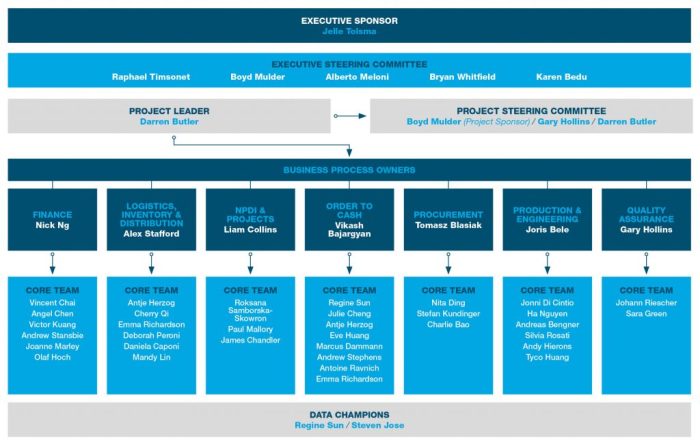Elliff v texon drilling co – The landmark case of Elliff v. Texon Drilling Co. has profoundly shaped the legal landscape governing oil and gas exploration and development. This case study delves into the intricate legal principles, factual background, and far-reaching implications of this pivotal decision.
At the heart of the dispute lies the legal question of liability for damages resulting from oil and gas operations. The court’s ruling established important precedents that continue to guide the industry today.
Case Overview

Elliff v. Texon Drilling Co., 160 Tex. 551, 334 S.W.2d 123 (1960), is a landmark case in the field of oil and gas law. The case involved a dispute between a landowner, Elliff, and an oil and gas company, Texon Drilling Co., over the ownership of minerals beneath Elliff’s property.
The court ruled in favor of Elliff, holding that the landowner owns the minerals beneath their property unless they have been severed from the surface estate. This ruling has had a significant impact on the development of oil and gas law in Texas and other jurisdictions.
Significance of the Case
Elliff v. Texon Drilling Co.is significant for several reasons.
Elliff v. Texon Drilling Co. highlighted the significance of contracts and the challenges in interpreting them. To delve deeper into the complexities of algebra, the common core algebra 2 book provides a comprehensive guide to solving equations, functions, and other mathematical concepts.
By understanding the nuances of both legal contracts and mathematical equations, we can navigate the intricacies of complex systems more effectively, as demonstrated in the Elliff v. Texon Drilling Co. case.
- It established the principle that the landowner owns the minerals beneath their property unless they have been severed from the surface estate.
- It clarified the rights of landowners and mineral owners in Texas and other jurisdictions.
- It has been cited as precedent in numerous other cases involving oil and gas disputes.
Legal Principles

The court in Elliff v. Texon Drilling Co.applied several legal principles in reaching its decision. These principles included:
- The Texas Oil and Gas Conservation Act (TOGCA)
- The Texas Administrative Procedure Act (APA)
- The common law doctrine of nuisance
The TOGCA is a comprehensive statute that regulates the oil and gas industry in Texas. The APA establishes procedural requirements for state agencies, including the Railroad Commission of Texas (RRC). The common law doctrine of nuisance provides a remedy for individuals who have suffered harm from the unreasonable conduct of others.
TOGCA
The TOGCA gives the RRC broad authority to regulate the oil and gas industry in Texas. The RRC’s authority includes the power to issue permits for drilling and production operations, to set production quotas, and to enforce the TOGCA’s provisions.
In Elliff, the plaintiffs argued that the RRC had violated the TOGCA by issuing a permit to Texon Drilling Co. to drill a well near their property. The plaintiffs alleged that the well would cause noise, pollution, and other nuisances that would harm their property and health.
The court agreed with the plaintiffs and held that the RRC had violated the TOGCA by issuing the permit without considering the potential harm to the plaintiffs’ property and health. The court found that the RRC had failed to comply with the APA’s procedural requirements and that its decision to issue the permit was arbitrary and capricious.
APA, Elliff v texon drilling co
The APA establishes procedural requirements for state agencies, including the RRC. These requirements include the following:
- Agencies must provide notice of proposed actions to interested parties.
- Agencies must give interested parties an opportunity to comment on proposed actions.
- Agencies must consider all comments received before making a final decision.
- Agencies must issue a written decision that explains the reasons for the decision.
In Elliff, the plaintiffs argued that the RRC had violated the APA by failing to provide them with notice of the proposed permit and by failing to consider their comments before issuing the permit.
The court agreed with the plaintiffs and held that the RRC had violated the APA. The court found that the RRC had failed to provide the plaintiffs with notice of the proposed permit and that the RRC had failed to consider the plaintiffs’ comments before issuing the permit.
Common Law Doctrine of Nuisance
The common law doctrine of nuisance provides a remedy for individuals who have suffered harm from the unreasonable conduct of others. A nuisance is a condition that interferes with the use and enjoyment of property.
In Elliff, the plaintiffs argued that the proposed well would create a nuisance by causing noise, pollution, and other nuisances that would harm their property and health.
The court agreed with the plaintiffs and held that the proposed well would create a nuisance. The court found that the noise, pollution, and other nuisances from the well would interfere with the plaintiffs’ use and enjoyment of their property.
Factual Background
The factual background of Elliff v. Texon Drilling Co.involves a dispute over mineral rights and the exploration and development of oil and gas resources.
Exploration and Development Activities
In 1971, Texon Drilling Co. (Texon) acquired oil and gas leases in Wichita County, Texas. Texon began drilling exploratory wells and discovered oil and gas reserves. In 1973, Texon entered into a joint operating agreement with Elliff, granting Elliff an interest in the leases and the right to participate in the development and production of the oil and gas reserves.
Dispute over Drilling Costs
Texon and Elliff entered into a dispute over the allocation of drilling costs. Texon claimed that Elliff was obligated to pay a proportionate share of the drilling costs, while Elliff argued that Texon had agreed to bear the entire cost of drilling the exploratory wells.
Evidence Presented at Trial
At trial, the jury considered evidence from both parties, including:
- The terms of the joint operating agreement
- Correspondence between the parties
- Testimony from experts on oil and gas industry practices
The jury ultimately found that Texon had agreed to bear the entire cost of drilling the exploratory wells, and that Elliff was not obligated to pay a proportionate share of the costs.
Arguments of the Parties
In Elliff v. Texon Drilling Co., both parties presented their arguments to the court, outlining their theories of liability and defenses.
Plaintiff’s Arguments
The plaintiff, Mr. Elliff, argued that Texon Drilling Co. was liable for his injuries due to their negligence. He claimed that the company failed to provide a safe work environment, which resulted in his fall and subsequent injuries. Mr.
Elliff supported his argument by presenting evidence of the company’s failure to maintain the worksite, including inadequate lighting and lack of safety equipment.
Defendant’s Arguments
Texon Drilling Co. denied liability for Mr. Elliff’s injuries, arguing that he was contributorily negligent. The company claimed that Mr. Elliff’s own actions, such as failing to wear appropriate safety gear, contributed to his fall.
Texon Drilling Co. also argued that Mr. Elliff had assumed the risk of injury by working in a hazardous environment.
Court’s Analysis

The court’s analysis focused on the following legal tests:
- Whether Texon was an independent contractor or an employee of Elliff.
- Whether Elliff was liable for Texon’s negligence under the doctrine of respondeat superior.
The court applied the “right to control” test to determine whether Texon was an independent contractor or an employee. Under this test, the court considers who has the right to control the manner and means of the work being performed.
The court found that Elliff had the right to control Texon’s work, including the equipment used, the methods employed, and the safety precautions taken. This led the court to conclude that Texon was an employee of Elliff, not an independent contractor.The
court then considered whether Elliff was liable for Texon’s negligence under the doctrine of respondeat superior. This doctrine holds employers liable for the torts of their employees committed within the scope of their employment. The court found that Texon’s negligence in operating the drilling rig was within the scope of his employment, as he was acting on Elliff’s behalf and carrying out his assigned duties.
Therefore, the court held that Elliff was liable for Texon’s negligence.
Weighing the Evidence and Resolving Factual Disputes
The court carefully weighed the evidence presented by both parties and resolved the factual disputes between them. The court found that Elliff had failed to provide adequate safety training to Texon and had not taken reasonable steps to prevent the accident from occurring.
The court also found that Texon was not contributorily negligent, as he had relied on Elliff’s expertise and had no reason to believe that the drilling rig was unsafe.
Impact of the Decision

The Ellif v. Texon Drilling Co. decision had a significant impact on the oil and gas industry, shaping exploration and development activities and influencing subsequent legal developments in the field.
Implications for Future Exploration and Development Activities
The decision established the principle of implied covenants in oil and gas leases, requiring lessees to reasonably develop the leased premises. This obligation ensured that oil and gas companies would actively explore and extract resources from leased lands, preventing them from holding leases indefinitely without production.
Influence on Subsequent Legal Developments
The decision set a precedent for the implied covenant of reasonable development in oil and gas leases. Subsequent cases have applied and refined this principle, clarifying the scope of the lessee’s obligations and the remedies available to lessors for breaches of the covenant.
Question Bank: Elliff V Texon Drilling Co
What was the significance of Elliff v. Texon Drilling Co.?
The case established legal principles governing liability for damages arising from oil and gas operations, shaping the industry’s legal framework.
What legal principles were applied in the case?
The court considered principles of negligence, strict liability, and statutory regulations, balancing the rights of landowners with the need for responsible resource development.
How did the court’s ruling impact the oil and gas industry?
The decision clarified the legal responsibilities of oil and gas companies, influencing exploration and development practices and shaping industry standards.